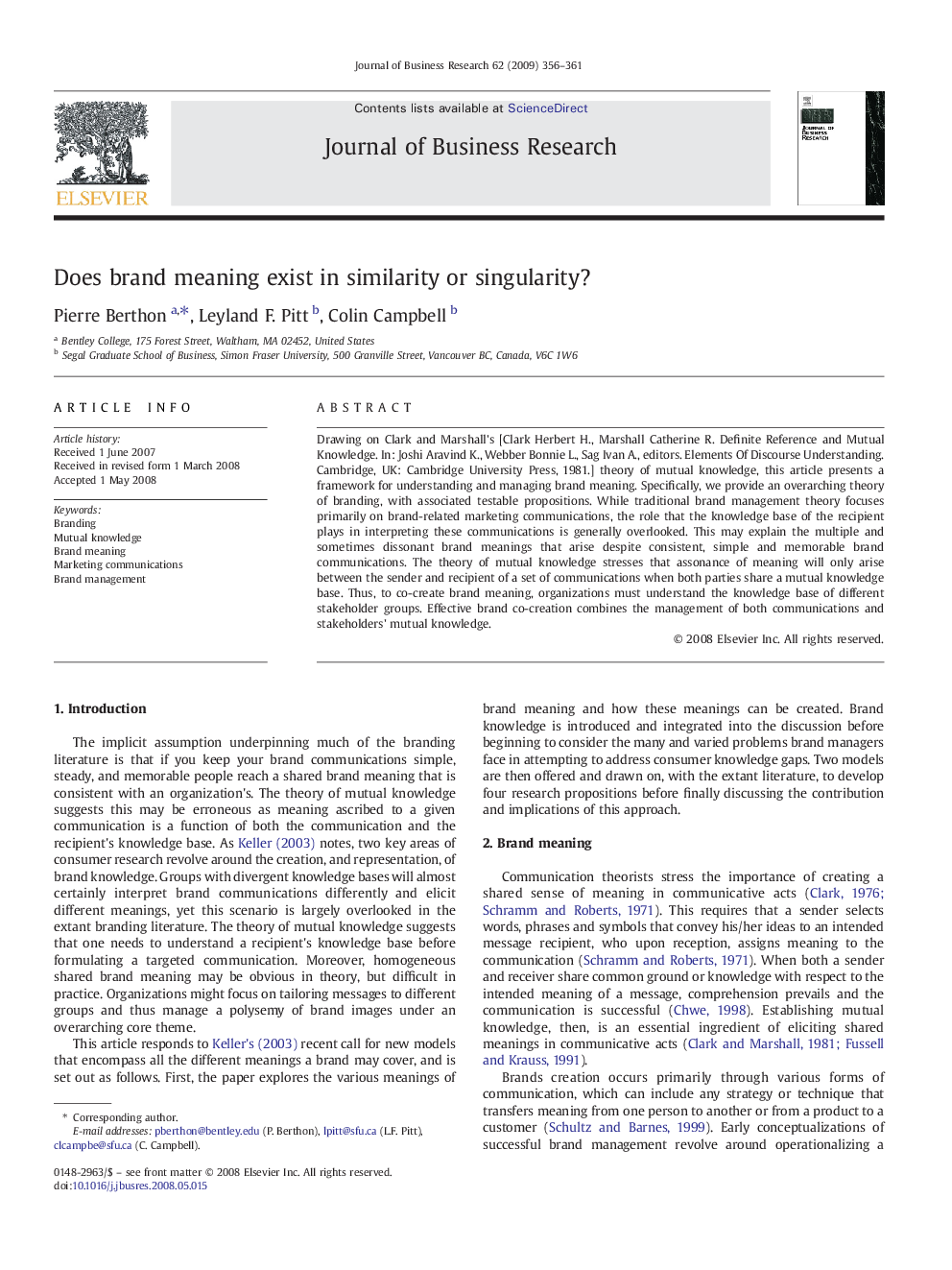| کد مقاله | کد نشریه | سال انتشار | مقاله انگلیسی | نسخه تمام متن |
|---|---|---|---|---|
| 1018355 | 940341 | 2009 | 6 صفحه PDF | دانلود رایگان |

Drawing on Clark and Marshall's [Clark Herbert H., Marshall Catherine R. Definite Reference and Mutual Knowledge. In: Joshi Aravind K., Webber Bonnie L., Sag Ivan A., editors. Elements Of Discourse Understanding. Cambridge, UK: Cambridge University Press, 1981.] theory of mutual knowledge, this article presents a framework for understanding and managing brand meaning. Specifically, we provide an overarching theory of branding, with associated testable propositions. While traditional brand management theory focuses primarily on brand-related marketing communications, the role that the knowledge base of the recipient plays in interpreting these communications is generally overlooked. This may explain the multiple and sometimes dissonant brand meanings that arise despite consistent, simple and memorable brand communications. The theory of mutual knowledge stresses that assonance of meaning will only arise between the sender and recipient of a set of communications when both parties share a mutual knowledge base. Thus, to co-create brand meaning, organizations must understand the knowledge base of different stakeholder groups. Effective brand co-creation combines the management of both communications and stakeholders' mutual knowledge.
Journal: Journal of Business Research - Volume 62, Issue 3, March 2009, Pages 356–361